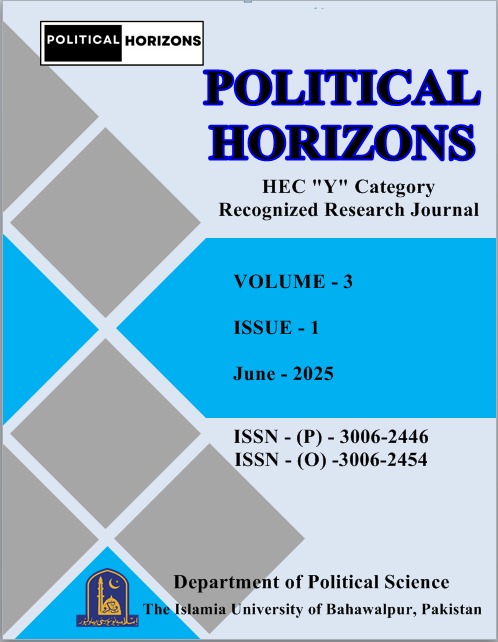Socio-Political and Economic Challenges of Sectarian Violence in Pakistan after 9/11: A Study of Lahore
Abstract
Sectarian violence refers to a clash of or animosity out of religious beliefs or divisions within the same religion. In Pakistan, it mostly happens between Sunni and Shia Muslims plus their little offshoots whereby violence keeps happening. Over the time, these sectarian conflicts have become worse, and instability has increased. It became a centre in the war on terrorism after the 9/11 attacks hence facilitating and fighting against religiously motivated violence. The country has violent threats everywhere, terrorism separatist insurgencies and interfaith conflicts. Post 9/11 change of security environment in Pakistan gave rise to conditions that nurtured sectarian violence. Internal factors, particularly long-standing sectarian divisions and extremist ideologies, overlaid with external political manipulation and regional dynamics, have again amplified the crisis. This paper tried to identify the socio-political and economic challenges that sectarian violence raises in Pakistan along with an overview of how religious intolerance, political interests, and outside influences are perpetuating these conflicts.
Keywords: Sectarian violence, Pakistan, 9/11, Sunni, Shia.

Downloads
Published
How to Cite
Issue
Section
License
Copyright (c) 2025 saima butt, Afira wattoo

This work is licensed under a Creative Commons Attribution-NonCommercial 4.0 International License.




